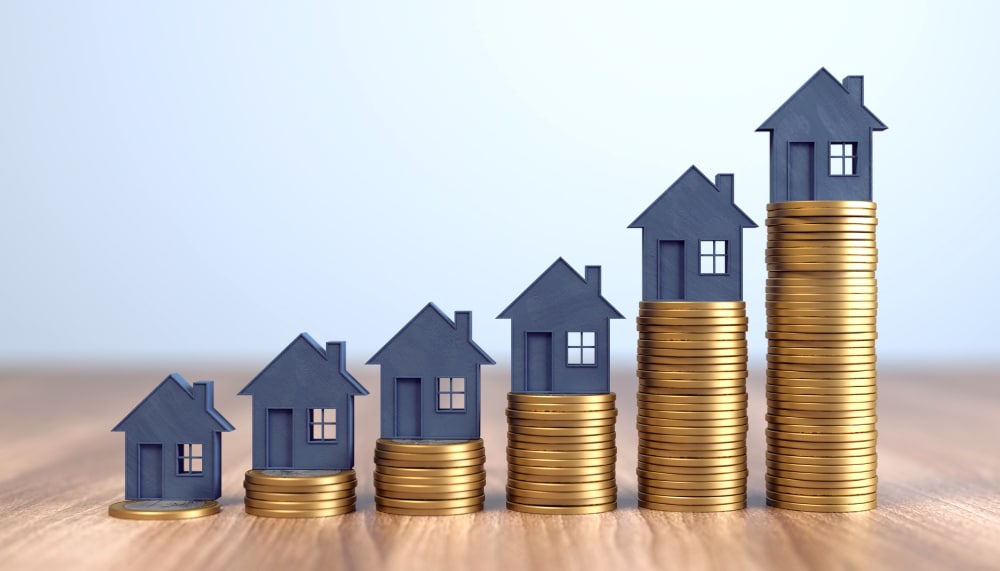8 Factors That Can Affect Your Property’s Value Appreciation
By: Melecio Martin G. Arranz IV

Time and again, real estate investments have been proven one of the most stable and safest investments compared to other assets like stocks. However, a common predicament for investors is making the most of their properties for significant returns, for not all are priced the same.
It’s worth learning and understanding the different aspects that can affect property value appreciation in real estate. This way, you can choose better options and make a well-informed investment decision.
If you’re in the market for real estate investment, this article will walk you through how price appreciation works and what influences it.
What is Price Appreciation in Real Estate?
Price appreciation in real estate pertains to how much a property’s value will increase over time. When investing in a property, appreciation should be on top of your mind. The amount of appreciation depends on several factors and real estate trends, including supply and demand and location.
Price appreciation can influence how much profit you can make from it when you put it up for sale in the future. To reap greater returns, some property investors buy properties based on appreciation—selling them later on when the demand is high and supply is low.
8 Factors That Can Influence the Appreciation of a Property
Whether you’re investing in condos or other types of property, here are some of the things that affect their value which you should keep in mind to plan your choices more carefully.
1. Neighborhood
A common piece of advice you’ll hear regarding real estate is to choose a property situated in a good location, particularly the neighborhood of the building. Quality schools, parks, stores, and proximity to main roads and expressways—these are just some of the things that can increase the value of a condo or home.
Upcoming infrastructures around the neighborhood, like public infrastructures or retail shops, can also account for appreciation.
2. Ease of Accessibility
Properties close to offices, business districts, schools, entertainment and shopping centers, expressways, medical facilities, and modes of transportation usually rate and appreciate higher than properties that don’t offer the same conveniences to homeowners’ or tenants’ needs.
Also, a property near tourist destinations makes the asset more attractive for investment and business ventures for entrepreneurs.
3. Quality and Features of the Development
What makes a residential development great is they’re built with the needs of the homeowners in mind. For instance, the security and safety protocols integrated into the development, the layout and construction of the properties, and the amenities and facilities available.
4. Property Developer’s Reputation
Residential and commercial properties built by established developers have higher quality and design than others. Thus, their resale value tends to be higher as well. In addition, the developer’s excellent record and reputation in the industry can attract more demand for their projects, especially if they’re within a good location and fully integrated with great features.
5. Supply and Demand
Market conditions significantly affect a property’s value. If properties are in high demand in an area and only a few are for sale, the value will increase. Likewise, the price will also drop if the local demand is low but other properties are available.
A great way for investors to survive downturns is to look for properties that have an established demand regardless of the circumstances.
6. Economic Outlook
Employment and population growth are just some economic factors that can influence the price movement in the real estate market. When more people can purchase or invest in properties, the demand rises. However, an economic slowdown, such as high unemployment rates, forces property prices to decrease.
7. Smart Upgrades
Installing advanced security systems, smart curtains, and other innovative home technologies can increase the value of a property—plus points if the property is transitioning into a more energy-efficient home. Condos that are Leadership in Energy and Environmental Design (LEED) certified are also likely to draw eco-conscious buyers; thus, increasing the property’s price.
8. Future Developments
Investors should also keep an eye on planned commercial and municipal developments in an area.; for example, schools, hospitals, and other establishments. Once these infrastructures are built in the area, the properties in proximity will see a positive increase in their value.
Make a Wise Real Estate Investment
Some property investors fail to see the risks in real estate investing due to a lack of proper research. With real estate, it takes time to see significant returns, and you can liquidate it easily. But if you’re looking long-term, the passive income and promise of price appreciation it can provide are what you can leverage.
Are you finally ready to invest in real estate? Check out premium condos for sale in the Philippines with the help of knowledgeable real estate professionals at Federal Land. Get in touch now to kickstart your condo journey!

